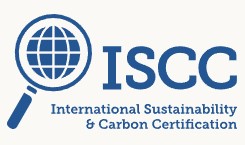
International Sustainability and Carbon Certification
GET ISO provides you International Sustainability and Carbon Certification (ISCC) as an international, practical and transparent system for the certification of biomass and bioenergy.
Producing energy and fuel from biomass is one new approach to securing the worldwide supply of energy and fuel for the future. To address this new market, the EU has created mandatory parameters for all EU member countries for the sustainable production and processing of biomass in the Renewable Energy Directive (RED) (EU-RL 2009/28/EC).
ISCC is an advanced program and the first recognized biomass and bioenergy certification scheme.
A global scheme, the ISCC concept has been thoroughly developed, tested in a pilot phase and proofed by European and German authorities. It is experience based, efficient and effective and also covers social sustainability issues.
Applicable to all biomass ISCC helps organizations to demonstrate responsibility towards:
Reduction of Greenhouse Gas Emission (GHG)
Sustainable land use
Protection of natural biospheres
Increase of social sustainability
ISCC PLUS offers options to extend sustainability certification to food, feed, technical/chemical and other bioenergy applications (e.g. solid biomass).
Our worldwide network of qualified auditors, controls and certifies sustainable biomass for the production of biofuel and bioenergy at each level of the supply chain. Certification of sustainability is vital in order to strengthen your market position. Beginning with farmers and agricultural traders, followed by oil and sugar mills, biodiesel and ethanol plants, and finally traders of biofuels and independent warehouses we cover every stage in the chain of custody


Benefits of getting certified to ISCC
ISCC certification eases both national and international trade, opening the door to increased market potential.
The International Sustainability and Carbon Certification (ISCC) is a voluntary certification scheme that enables participants to demonstrate that they are producing biomass in a manner that meets community expectations for environmentally, socially, and economically sustainable production.
The certification system covers all sustainable feedstocks, including agricultural and forestry biomass, biogenic wastes and residues, circular materials, and renewables.
ISCC’s mission is to protect forests, high-carbon stock lands, and biodiversity, enable waste utilization, and increase traceability. The organization believes that sustainable supply chains are crucial to fight the most severe impacts of the climate crisis. Since greenhouse gas (GHG) emissions are major contributors to climate change, ISCC also considers the identification and reduction of GHG emissions as an important part of its work.
ISCC has several objectives, including the implementation of zero-deforestation, protection of land with high biodiversity value and high carbon stock, protection of soil, water and air, compliance with human, labor and land rights, measurement and reduction of greenhouse gas emissions, and traceability throughout supply chains.
ISCC is a globally applicable sustainability certification system with over 8000 valid certificates in more than 120 countries. It has been developed through an open multi-stakeholder process and is governed by an association with more than 240 members, including research institutes and NGOs. As a no-deforestation standard with a strong commitment to protect forests, high-carbon stock lands, and biodiversity, ISCC strives for a world where biomass and other raw materials are produced in an environmentally, socially, and economically sustainable manner.
The ISCC certification offers numerous benefits to businesses across various industries.
Firstly, it provides a reliable and internationally recognized standard for sustainable practices, ensuring that companies are operating in an environmentally friendly and socially responsible manner. This certification also enhances the reputation and credibility of organizations, as it demonstrates their commitment to sustainability and transparency.
Additionally, the ISCC certification opens up new market opportunities, as more and more consumers are demanding products that are produced sustainably. By obtaining this certification, companies can tap into these growing market segments and gain a competitive advantage.
Moreover, ISCC certification ensures compliance with legal requirements, mitigating the risk of penalties and reputational damage.
Overall, the benefits of ISCC certification are significant and can positively impact a company's bottom line while contributing to a more sustainable future.
Contact us today to find out how we can support your organization’s biomass business.


